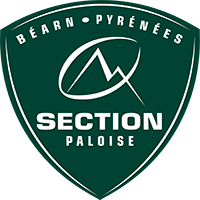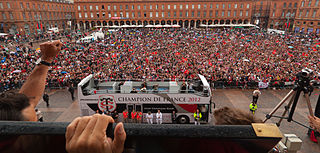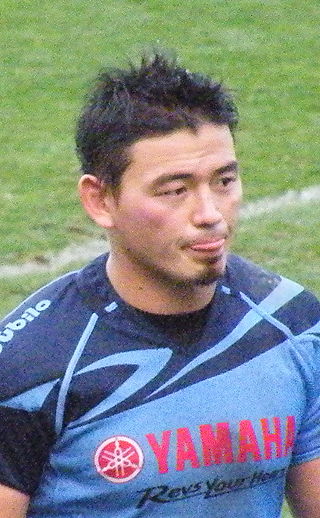Coaching career
He became coach of La Rochelle immediately after retiring and remained there for five years. After a few months hiatus, he returned to the job in 1994 and stayed there for nine further years and finished his time there winning the penultimate Challenge Yves du Manoir in 2003.
After leaving La Rochelle, he joined Béziers but he was sacked in 2005 after less than two years in charge as they were relegated from the Top 16.
Soon after leaving Béziers, in March 2005 he became backs coach to the Japan national rugby union team, and three months later after Mitsutake Hagimoto was sacked he was appointed the first ever foreigner to coach Japan, and was backed to lead them to the 2007 Rugby World Cup.
After just over a year in charge, he was sacked in September 2006 after he took on a role with Bayonne without consulting the JFRU and then refused to give up his role to concentrate on coaching Japan. Élissalde went on to spend two seasons with Bayonne before being sacked in 2008.
In December 2011, after Bayonne were languishing at the bottom of the Top 14 they sacked their coaches and Élissalde returned to Bayonne. However he was sacked after just 40 days in charge after Bayonne continued to struggle and failed to win a game under him in the Top 14, and as he left he was criticised by the Bayonne owner Alain Affleou who said "Élissalde was a mistake, he had a negative attitude towards the players". [1] [2]

The Japan national rugby union team, also known as the Cherry Blossoms, the Brave Blossoms, or simply Sakura, represents Japan in men's international rugby union. Japan is traditionally the strongest rugby union power in Asia and has enjoyed and endured mixed results against non-Asian teams over the years. Rugby union in Japan is administered by the Japan Rugby Football Union (JRFU), which was founded in 1926. They compete annually in the Pacific Nations Cup (PNC) and previously in the Asia Rugby Championship (ARC). They have also participated in every Rugby World Cup (RWC) since the tournament began in 1987, and hosted the event in 2019.
The France national rugby union team represents the French Rugby Federation in men's international rugby union matches. Colloquially known as Le XV de France, the team traditionally wears blue shirts with a Gallic rooster embroidered on the chest, white shorts and red socks in reference to the French national flag. Les Bleus mostly play home matches at the Stade de France in Saint-Denis, near Paris. They compete in the annual Six Nations Championship along with England, Ireland, Italy, Scotland and Wales. France have won the tournament on 26 occasions, winning the Grand Slam 10 times.

The Top 14 is a professional rugby union club competition that is played in France. Created in 1892, the Top 14 is at the top of the national league system operated by the France National Rugby League, also known by its French initialism of LNR. There is promotion and relegation between the Top 14 and the next level down, the Pro D2. The fourteen best rugby teams in France participate in the competition, hence the name Top 14. The competition was previously known as the Top 16.
Takuro Miuchi is a Japanese rugby union player, who plays number eight. He was captain of the Japan national rugby union team until relieved of that responsibility by Japan national team coach Jean-Pierre Elissalde in a surprise move during February 2006. He was recalled to the team for the IRB Pacific 5 Nations games, and has appeared in 2 World Cups - 2003 and 2007.

Aviron Bayonnais, commonly called Bayonne, is a French rugby union club from Bayonne in Pyrénées-Atlantiques which competes in the Top 14, the top tier of the French league system. Founded in 1904, they play at the Parc des Sports, also known as Stade Jean-Dauger, in Bayonne. The club mascot is a pottok pony called pottoka. They have ties to the French Basque community.

Section Paloise, often referred to simply as Section or Pau, is a professional rugby union club based in Pau, France. They are participants in the Top 14, France's premier rugby division, and also compete in the EPCR Challenge Cup.

Jacques Fouroux was a French rugby union player and coach. He captained France when they won the Grand Slam in 1977, and was the manager when the side repeated the feat in 1981 and 1987. Due to his small stature and strong personality, he was nicknamed "Le petit caporal", a reference to Napoléon Bonaparte's nickname.

Jean-Baptiste Élissalde is a former French rugby union player, playing either as a scrum-half or as a fly-half, and most recently defense coach for Montpellier in the Top 14.

Guy Novès is a former French rugby union player and most recently coach of the French national team. Born in Toulouse, Novès, who played on the wing, was capped seven times for his country, and played with Stade Toulousain from 1975 to 1987 and was a member of the team that won the Bouclier de Brennus in 1985 and 1986. He later coached the side in a tenure that lasted 22 years, when he won the French championship nine times and the Heineken Cup four times.

Sporting Club Albigeois is a professional French rugby union club playing the third-level Nationale. During the past years it went back and forth between Top 14, the highest level of the French league system and the second-level Rugby Pro D2. Their last time in the Top 14 was for 2009–10 after winning the 2008–09 promotion playoffs. The previous one began in 2006 and came to an end after the 2007–08 season due to financial issues. Founded in 1907, the club plays at the Stadium municipal d'Albi. They wear black and yellow. They are based in Albi in Occitanie.

The Bouclier de Brennus, or Brennus Shield in English, is a trophy awarded annually to the French rugby union club that wins the domestic league.

Racing 92 is a French professional rugby union club based in the Hauts-de-Seine department, Paris' western inner suburbs that competes in Top 14. The club plays its home matches at the 30,681-capacity domed stadium Paris La Défense Arena, located near the La Défense business district.

Stade Rochelais, commonly called La Rochelle, is a French professional rugby union club based in La Rochelle, France that competes in the Top 14. Founded in 1898 and wearing yellow and black, the club's first-team plays its home matches at Stade Marcel-Deflandre.
The 2010–11 Top 14 competition was a French domestic rugby union club competition operated by the Ligue Nationale de Rugby (LNR). Home-and-away play began on August 13, 2010 and continued through April 2011. The regular season was followed by a three-round playoff starting in May that involved the top six teams, culminating in the final on June 4 at Stade de France. Toulouse won the Bouclier de Brennus for the 18th time, defeating Montpellier 15–10.
Osamu Ota is a former Japanese rugby union player and a coach. He played as a prop.

The 2011–12 Top 14 competition was a French domestic rugby union club competition operated by the Ligue Nationale de Rugby (LNR). Home-and-away play began on August 26, 2011. Two new teams from the 2010–11 Rugby Pro D2 season were promoted to Top 14 this year, Lyon and Bordeaux Bègles in place of the two relegated teams, La Rochelle and Bourgoin.

Ayumu Goromaru is a former Japanese rugby union player who played at fullback for Yamaha Júbilo as well as the Japan national rugby union team.
Takashi Akatsuka, is a former Japanese rugby union player. He played as lock.

Antoine Hastoy is a French professional rugby union player who plays as a fly-half for Top 14 club La Rochelle and the France national team.
Jon Zabala is a Spanish rugby union player, who plays for Section Paloise.













